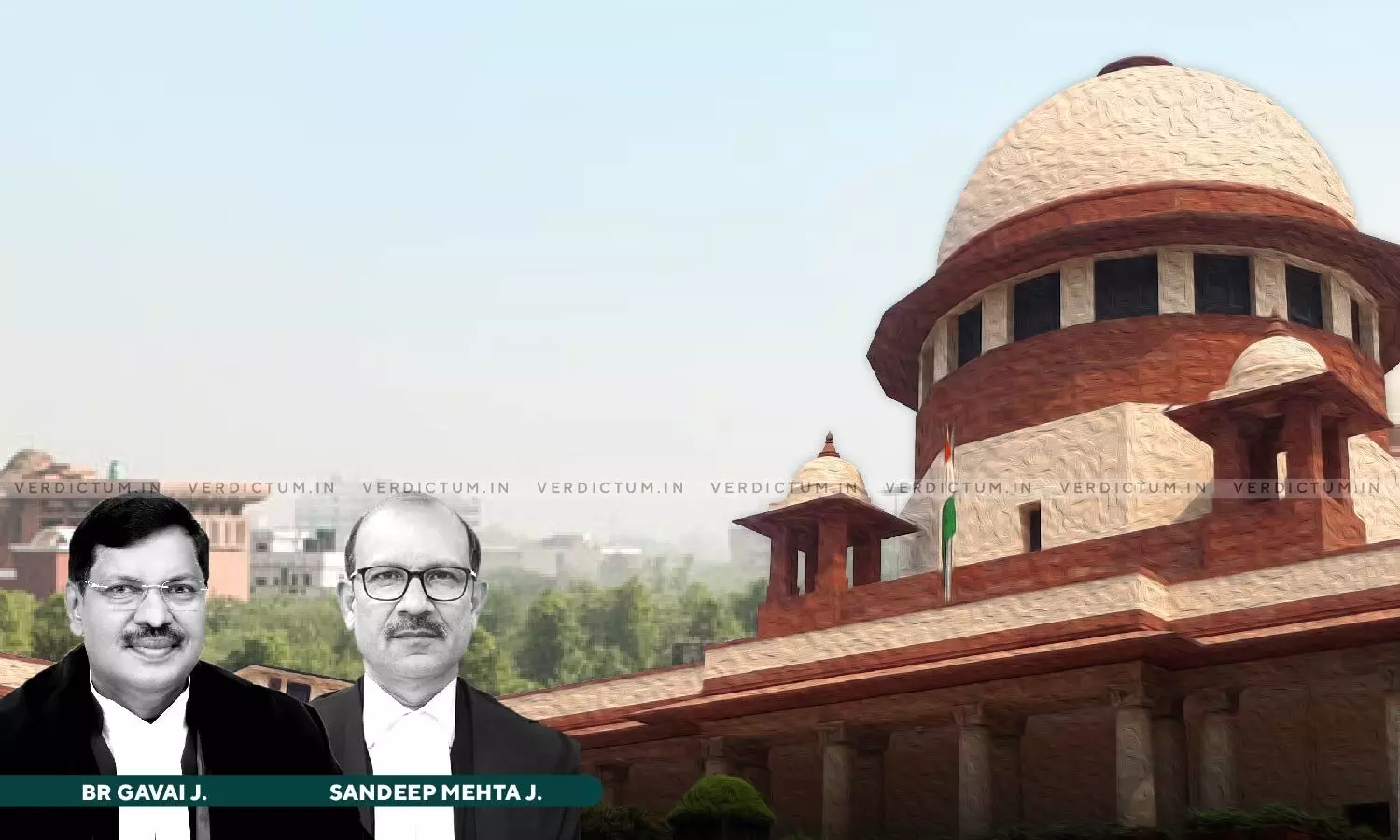
In Absence Of Proper Identification Parade Being Conducted, Identification For First Time In Court Can’t Be Said To Be Free From Doubt: SC
 |
|The Supreme Court held that in the absence of proper identification parade being conducted, the identification for the first time in the court cannot be said to be free from doubt.
The Court held thus in an appeal against the judgment of the Kerala High Court by which an appeal of the accused was dismissed and his conviction was confirmed for the offence punishable under Section 397 read with Section 395 of the Indian Penal Code (IPC).
The two-Judge Bench of Justice B.R. Gavai and Justice Sandeep Mehta observed, “In the absence of proper identification parade being conducted, the identification for the first time in the Court cannot be said to be free from doubt. We find that the other circumstance that the Courts relied for resting the order of conviction is with regard to the recovery of an iron rod. An iron rod is an article which could be found anywhere. It is not the case of the prosecution that any stolen article was recovered from the appellant herein.”
Advocate T.N. Singh appeared for the appellant/convict while Advocate Harshad V. Hameed appeared for the respondent/State.
In this case, the appellant was convicted under Section 397 read with Section 395 of the IPC and was sentenced to undergo rigorous imprisonment for seven years with a fine of Rs. 10,000. The case of the prosecution was that in 2004, the accused persons came in a vehicle driven to the building where retail shops of Kerala State Beverages Corporation were situated. Their intention was to commit dacoity and hence, they were armed with deadly weapons like iron lever and wooden bar. The appellant kicked on the naval portion of the security guard at the gate and beat him with an iron lever on the right leg which resulted in fracture.
Other accused persons beat him with the wooden bar on various parts of his body and then tied his legs and hands with bath towels and made him lie on the cot. Thereafter, they fastened his body on the cot with a piece of bedsheet and the remaining piece was pushed into his mouth. They mishandled him and then committed robbery of mobile phone, wrist watch, and torch. They also destroyed the light in the building and lock of the shutters of the retail shop. Hence, a case was registered against the accused.
The Supreme Court in view of the above facts noted, “Anil Kumar (PW-8), who is the Investigating Officer (IO), has also admitted that PW-1 identified the accused persons by seeing them at the police station. He has further admitted that no identification parade was conducted. As such, it can be seen that the identification of the appellant herein by PW-1 is quite doubtful as no identification parade has been conducted. PW-1 clearly states that he has identified the accused persons since the police had shown him those two people.”
The Court said that the judgment and order passed by the High Court dismissing the appeal and of the Trial Court convicting the appellant are not sustainable in law.
Accordingly, the Apex Court allowed the appeal, quashed the impugned judgment, and acquitted the appellant.
Cause Title- Jafar v. State of Kerala (Neutral Citation: 2024 INSC 207)
Appearance:
Appellant: AOR T. N. Singh, Advocates Vikas Kumar Singh, and Rajshree Singh.
Respondent: AOR Harshad V. Hameed, Advocates Dileep Poolakkot, Ashly Harshad, Shivam Sai, and Mansha Shukla.